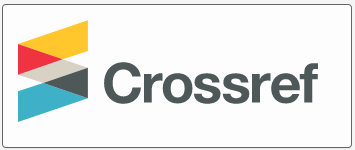Georgian Electoral System – Current Problems and Challenges
DOI:
https://doi.org/10.52340/jds.2022.02.22Keywords:
Elections, Proportional Electoral System, Georgian Electoral System.Abstract
According to the definition of modern democracy, the main means of control of the government by citizens is free elections. Elections are a necessary condition for the democratic nature of the state and not a guarantee of it. The election is the key factor in the functioning of democratic systems, which determines the relevance of this topic.
The article concerns the Georgian Electoral System, its characteristics, and existing problems; in detail reviews the establishment of the electoral system and the existing regulations of electoral procedures.
The article reviews the current problems related to the amendment of the Constitution that includes the transformation of the electoral system to a totally proportional electoral system. The authors gave a detailed analysis of the given draft law and comparative analysis regarding the German electoral system.
With respect to democratic principles, thus, any electoral system may be chosen, regardless if it is a plurality or majority system, a proportional system, or a combined system. It should be underlined that there is no such thing as the "best" electoral system that could be exported to all countries in the world. Thus, the electoral system and proposals to reform should be assessed in each individual case.
Downloads
References
Center for Electoral Systems Development, Reforms, and Training, Assistance Handbook for Students of Georgian Higher Education Institutions, 2014-2015, http://www.electionreforms.ge/res/docs/827.pdf [17.11.2019].
Degenhart, Ch., Staatsrecht, I. (2002). Staatsorganisationsrecht, Heidelberg, 23.
Grundgesetz für die Bundesrepublik Deutschland, Artikel 38, Absatz 1.
Huntington, S. P. (1968). Political Order in Changing Societies, 49.
Kakachia, K., Pataraia, T. (2013). The Role of Social Media in Georgian Party Politics, 17, Tbilisi.
Makara, S. (2009). the Challenge of Building Stron Political Parties for Democratic Governance in Uganda: Does multiparty politics have a future? The East African Reviews, N41, 2009, 43-80 https://journals.openedition.org/eastafrica/580 [04.12.2019].
Mgaloblishvili, N. Fair Elections in the process of democratic development http://participate.ge/index.php?lang_id=GEO&sec_id=43&info_id=1909 [02.12.2019].
The Citizen of Georgia Giorgi Ugulava vs Parliament of Georgia, №3/1/574, May 23, 2014.
The Legal Education and Justice Centre, https://jelec.iliauni.edu.ge/me-5-mukhlis-pirveli-punqti/ [12.11.2019].
Venice Commission (2019), European Commission for Democracy through Law (Venice Commission), Compilation of Venice Commission Opinions and Reports Concerning Electoral Systems, Strasbourg, 18 March 2019, 7.
Государственное право Германии, под редакции И. Изензее, К. Кирхоф, Хайдельберг, 1987-1992, 161-165














